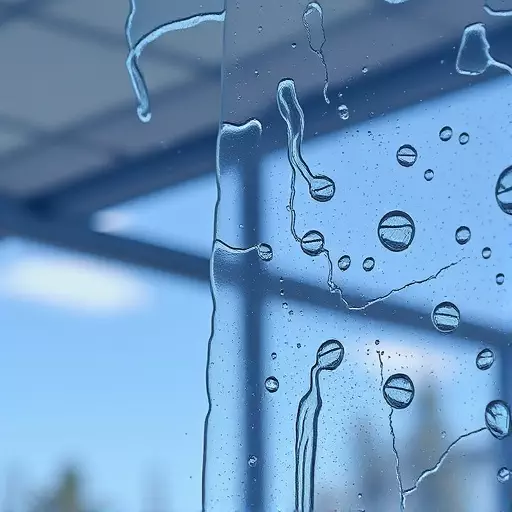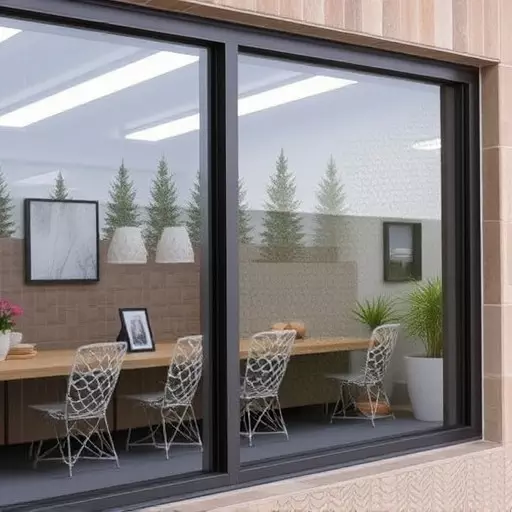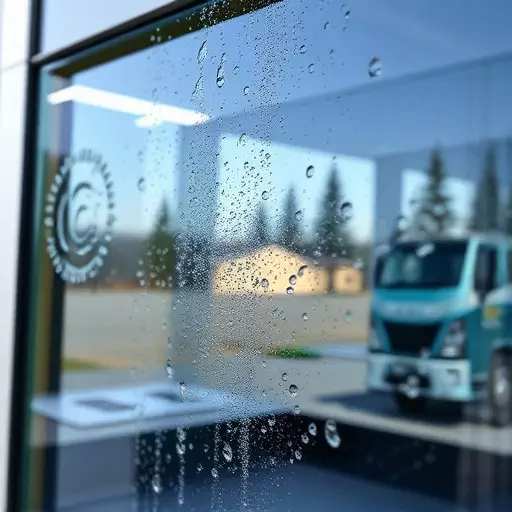Glass, though transparent and strong, is susceptible to corrosion in extreme conditions like high moisture, chemicals, or temperatures. Anti-corrosion glass treatments, crucial for industrial facilities in Lake Orion, Michigan, create protective barriers against these elements. These coatings preserve the integrity of glass structures over time, reducing maintenance costs and enhancing performance while maintaining aesthetic appeal. In this harsh climate, specialized treatments tailored to local conditions have saved businesses and government bodies money while ensuring long-lasting glass structures. With advanced technologies like self-repairing or multi-functional coatings on the horizon, anti-corrosion glass protection in Lake Orion, Michigan, is poised to revolutionize industries demanding durable materials.
“In harsh environments, from industrial settings to coastal regions, glass structures face an unyielding enemy: corrosion. This element can cause significant damage, leading to structural weakness and aesthetic degradation. Thus, understanding the vulnerability of glass in extreme conditions is paramount. This article explores durable glass coatings as a game-changer in anti-corrosion protection. We delve into various treatments, study a successful implementation in Lake Orion, Michigan, and forecast future trends in glass anti-corrosion technology, providing insights for efficient, long-lasting glass structures.”
- Understanding Glass and Its Vulnerability to Corrosion
- The Need for Durable Coatings in Extreme Environments
- Types of Anti-Corrosion Glass Treatments
- Case Study: Lake Orion Michigan's Glass Protection Solutions
- Benefits and Applications of Corrosion-Resistant Coatings
- Future Trends in Glass Anti-Corrosion Technology
Understanding Glass and Its Vulnerability to Corrosion
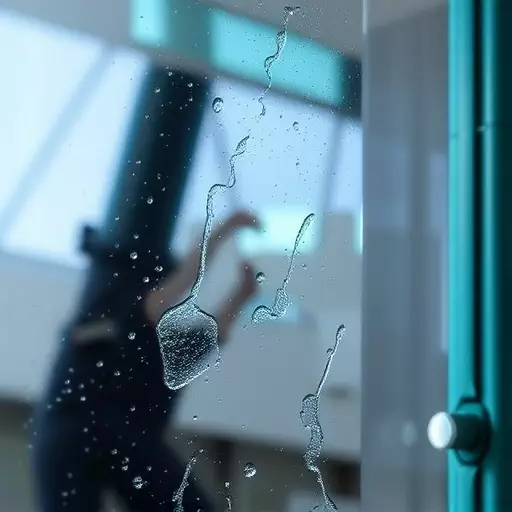
Glass, a material known for its transparency and strength, has long been a staple in construction and industrial applications. However, it possesses a unique vulnerability: sensitivity to corrosion. In extreme conditions, such as exposure to harsh chemicals, high temperatures, or moisture, glass can suffer damage that weakens its structure and reduces its longevity. This is where anti-corrosion glass treatments become essential, especially for industrial facilities in regions like Lake Orion, Michigan, known for their demanding environments.
Implementing corrosion-resistant glass coatings offers a robust solution to protect glass surfaces from these detrimental factors. These advanced treatments form a protective barrier, preventing the penetration of corrosive substances and ensuring the integrity of the glass over time. By utilizing specialized anti-corrosion protection, structures can withstand harsh conditions, maintaining their aesthetic appeal and structural soundness for extended periods, thereby reducing maintenance costs and enhancing overall performance.
The Need for Durable Coatings in Extreme Environments
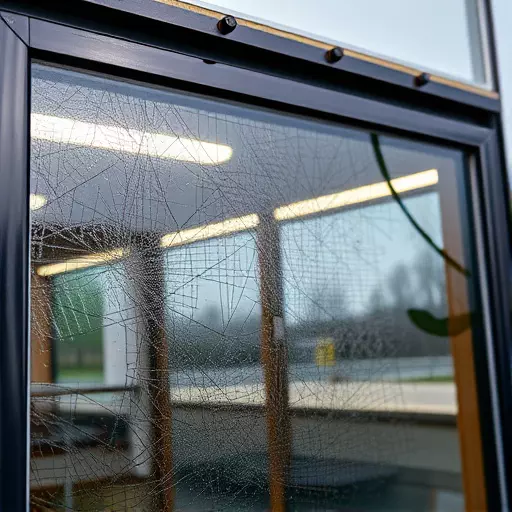
In many industrial and commercial settings, extreme environments pose significant challenges for materials used in construction and equipment. From corrosive substances to harsh weather conditions, these factors can accelerate material deterioration, leading to costly repairs or replacements. This is especially true for glass, a material known for its beauty but vulnerability in certain contexts. The need for durable coatings in these environments becomes paramount, driving the development of advanced anti-corrosion glass treatments.
For instance, consider industrial facilities near bodies of water like Lake Orion, Michigan. The area’s humid, lake-side climate can accelerate corrosion, making it imperative to use corrosion-resistant glass coatings. These specialized treatments not only shield glass surfaces from environmental damage but also maintain their structural integrity and aesthetic appeal over extended periods. By offering effective glass anti-corrosion protection, these coatings prove indispensable in extreme conditions, ensuring the longevity of structures and equipment.
Types of Anti-Corrosion Glass Treatments
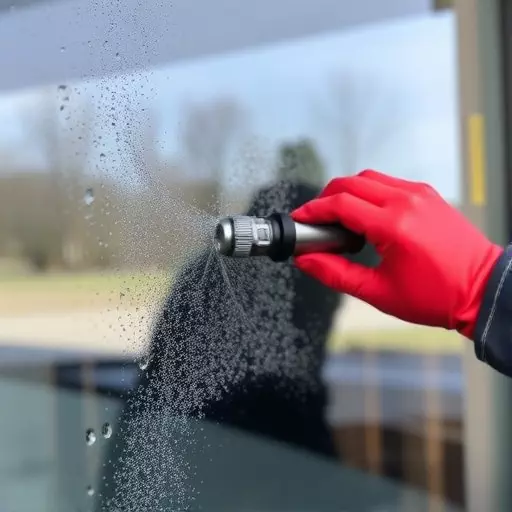
In the pursuit of durability and longevity, especially in extreme conditions, anti-corrosion glass treatments have emerged as a vital solution for surfaces exposed to harsh elements. These innovative processes go beyond conventional coatings, offering robust protection against corrosion, rust, and deterioration. One prominent example is the application of specialized coatings in Lake Orion, Michigan, where local experts specialize in durable glass treatments tailored to the region’s unique environmental challenges.
The market offers a spectrum of anti-corrosion glass treatments, each designed for specific needs. These include chemical resistance coatings, which create an impenetrable barrier against corrosive substances, ideal for industrial settings. Another popular approach involves surface hardening treatments that enhance the glass’s natural resilience, making it more resistant to scratches and chipping, a common concern in outdoor applications. Additionally, some treatments focus on improving the glass’s ability to withstand extreme temperatures, ensuring its structural integrity in harsh climates.
Case Study: Lake Orion Michigan's Glass Protection Solutions

Lake Orion, Michigan, is a prime example of how specialized glass treatments can transform a location’s resilience against harsh conditions. The city, known for its beautiful lakeside scenery and challenging weather patterns, has embraced anti-corrosion glass solutions to protect both its infrastructure and residents’ well-being. By implementing corrosion-resistant glass coatings, Lake Orion has successfully mitigated the detrimental effects of moisture, salt, and extreme temperatures on glass surfaces.
This initiative began with a comprehensive study of the local environment, identifying the primary causes of corrosion in the area. Experts then developed tailored glass anti-corrosion protection systems that address specific challenges like acid rain, high humidity, and road salting. The results have been impressive, with significantly reduced maintenance costs for local businesses and government entities. Additionally, these advanced coatings enhance the longevity of glass structures, ensuring they remain clear, safe, and aesthetically pleasing for years to come.
Benefits and Applications of Corrosion-Resistant Coatings

Durable glass coatings offer significant advantages in environments prone to corrosion, making them an essential consideration for various industries and applications. These specialized treatments provide an effective barrier against harsh conditions, ensuring the longevity and integrity of glass surfaces. By employing anti-corrosion glass treatments, like those available in Lake Orion, Michigan, professionals can protect structures from the damaging effects of moisture, chemicals, and extreme temperatures.
The applications of corrosion-resistant glass coatings are vast. They are particularly useful in industrial settings where exposure to corrosive substances is common. From chemical plants to marine environments, these coatings ensure that critical equipment and infrastructure remain intact over extended periods. Moreover, they enhance the safety and aesthetics of architectural glass, preventing premature deterioration and maintaining a pristine appearance, thereby increasing the property’s value.
Future Trends in Glass Anti-Corrosion Technology

As technology advances, future trends in glass anti-corrosion technology are expected to revolutionize industries heavily reliant on durable materials. Researchers and manufacturers are continuously exploring innovative solutions to enhance corrosion resistance, particularly for glass in extreme environments like Lake Orion, Michigan. One promising area of focus is developing smart coatings that can adapt and repair themselves, extending the lifespan of glass structures significantly. These advanced treatments could involve nanomaterials that self-heal cracks and corroded areas, ensuring long-term protection against environmental aggressors.
Additionally, there’s a growing interest in integrating anti-corrosion properties with other functional coatings, such as antimicrobial, UV-protective, or even self-cleaning layers. Such multi-functional glass anti-corrosion treatments could offer all-in-one solutions for architects and builders, reducing the number of coating applications needed while enhancing overall durability. This trend shifts towards more sustainable construction practices, aligning with the growing demand for corrosion-resistant glass coatings in various sectors.
